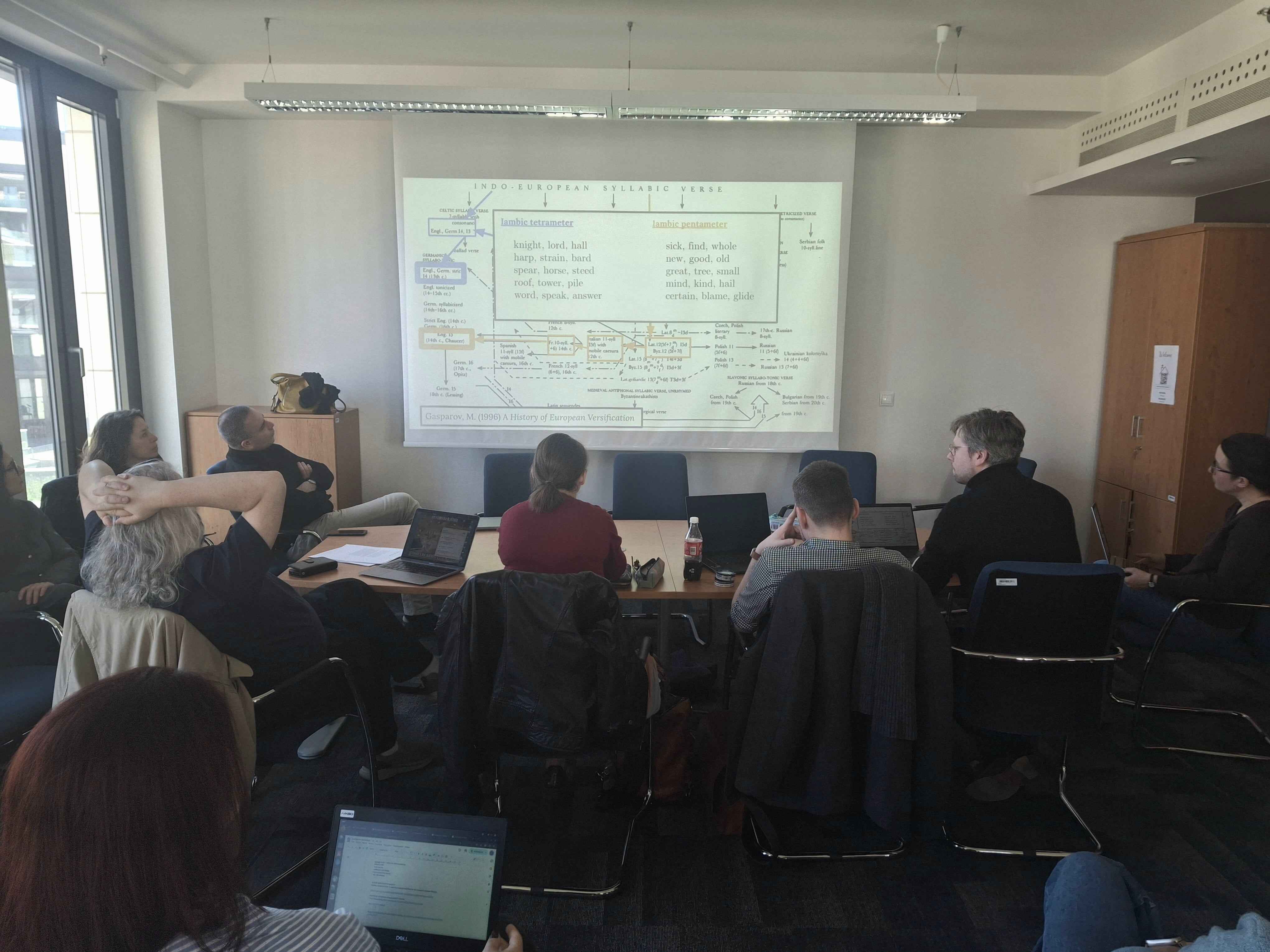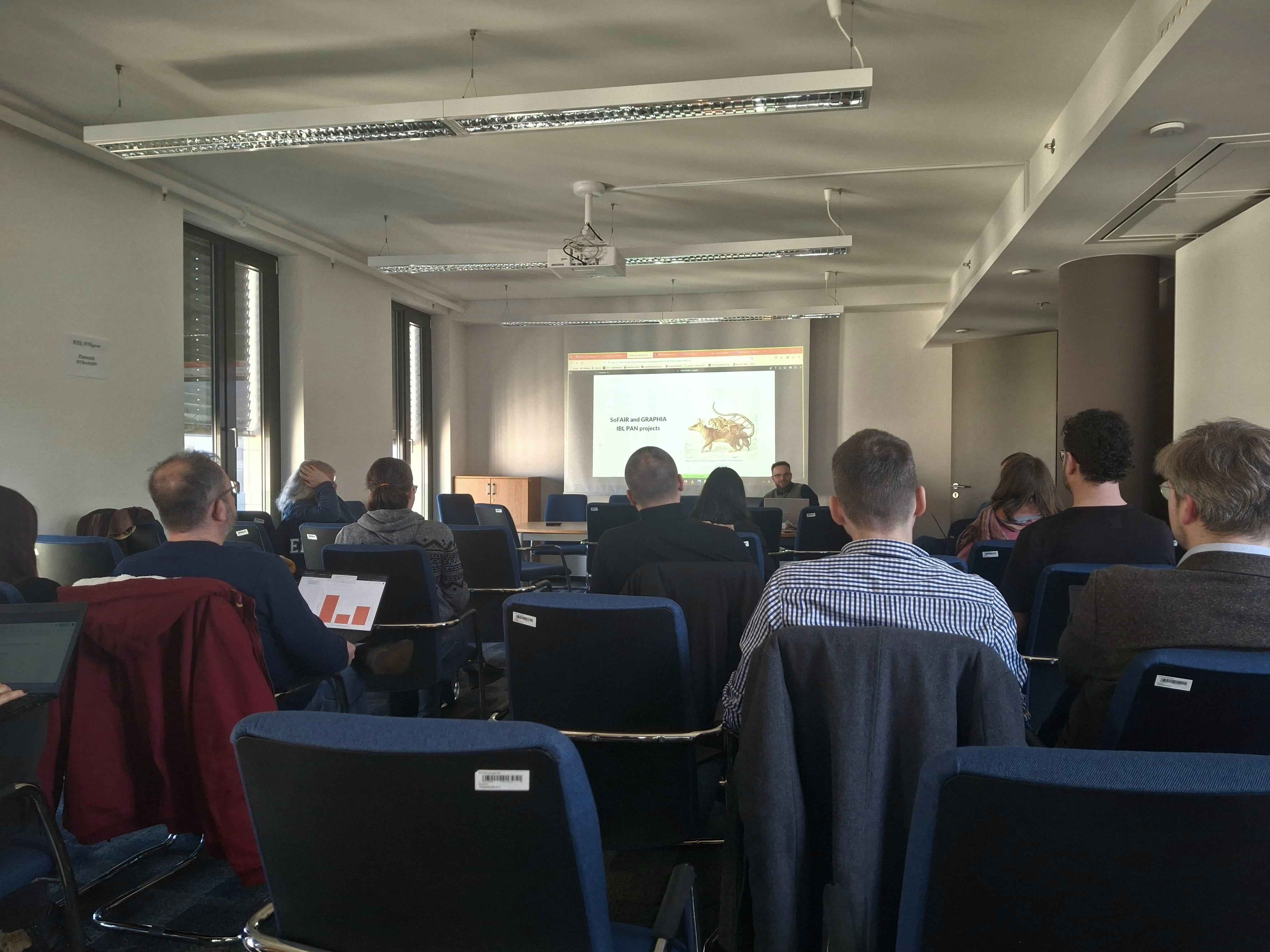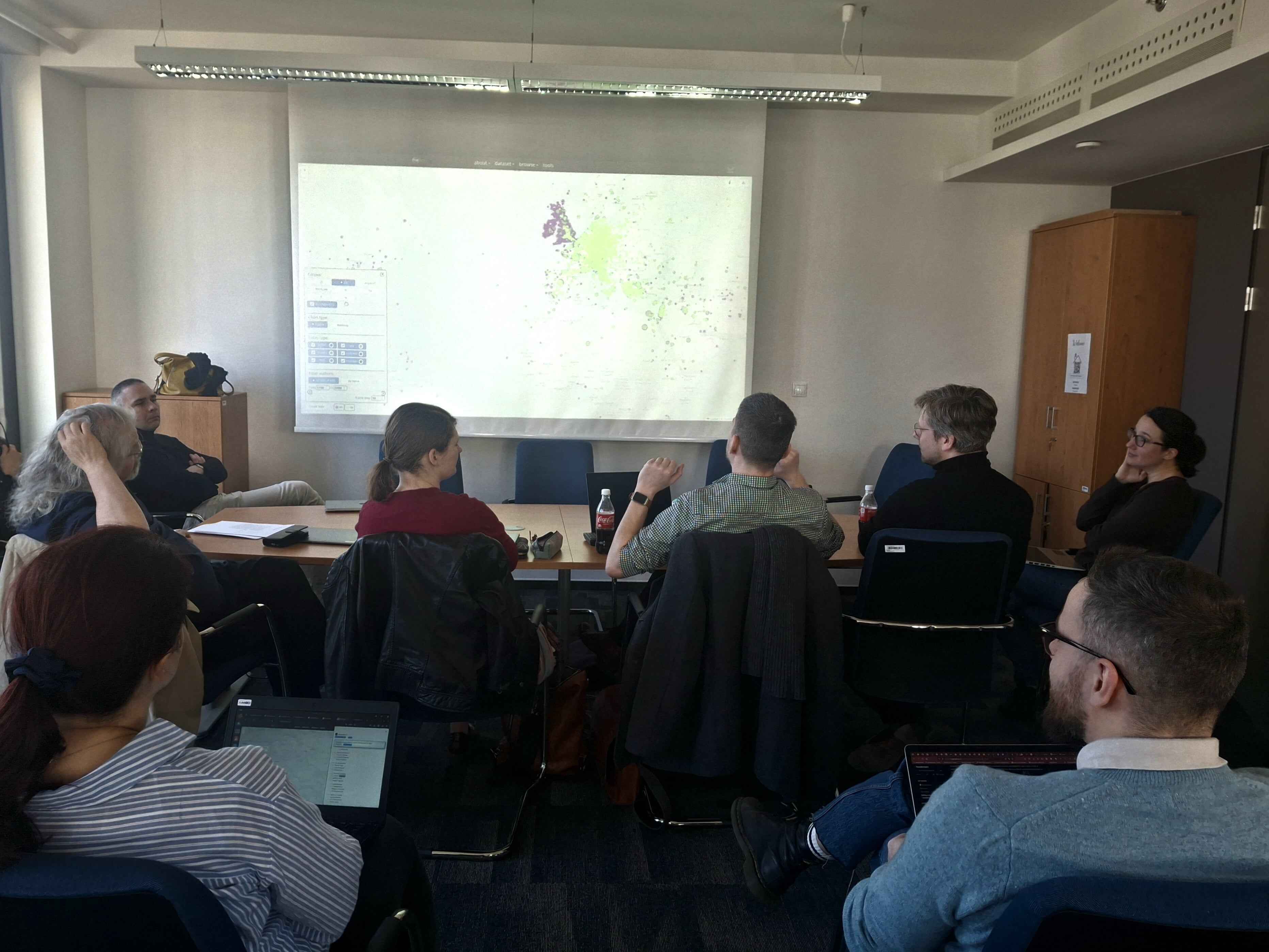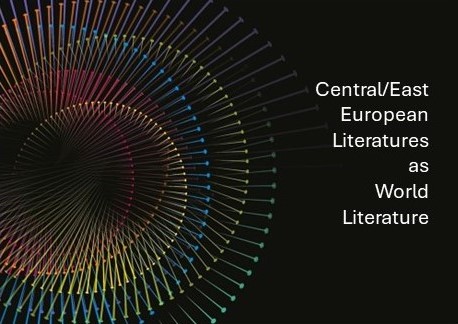See below the Program of the Workshop no. 1., some photos and summary of the proceedings with detailed bibliography:




The workshop fully achieved its objectives and successfully aligned researchers toward a shared research agenda. The opening lecture, delivered by Botond Szemes on the first day, outlined two broad directions for potential collaboration: the study of bibliographic and biographical metadata, and the text mining analysis of comparable literary corpora.
Jessie Labov, who will continue to coordinate related research in the future, led the discussion on the first category. Key contributions to this discussion were made by Kata Dobás, editor of the HUN-REN RCH Institute of Literary Studies' Wikibase-based semantic knowledge graph; Snejana Ung, who gave a presentation on literary relations between Romania and South Slavic countries based on translation metadata; and Anna Mędrzecka-Stefańska, who spoke on Polish biographical research. Based on the range of existing contributions, the group determined that it would be more productive to summarise and connect current infrastructures rather than build an entirely new database from scratch.
A public lecture series titled "Metadata Afternoon" was held on 20 March as part of this initiative. Presentations were given by Botond Szemes, Kata Dobás, Patryk Hubar, Snejana Ung, and guest speaker Péter Király (joining online), who spoke about translation patterns in Hungarian literature using large-scale data analysis. Király’s talk generated substantial interest, and the group decided to maintain closer contact with him in future projects. In addition to the group members, attendees included Gábor Palkó, Zsófi Fellegi, and Barbara Bobák from the DigiPhil project of the HUN-REN RCH Institute of Literary Studies; Tamás Scheibner, a researcher at Eötvös Loránd University (ELTE) and HUN-REN RCH; Róbert Péter from the University of Szeged, developer of AVOMBAT infrastructer; and Patrick Joula, a visiting lecturer at ELTE’s Department of Digital Humanities.
The second research strand—literary text analysis—was divided into two subfields. Petr Plecháč and Artjoms Sela introduced the PoeTree database and interface. They discussed the potential of algortihmic analysis of poetry through this plaform. Given the promising development of this project, much of the conversation focused on its potential applications for regional literary historiography. Ben Nagy contributed important insights, especially on the automatic detection of poetic imitation and literary influence.
A further lively discussion centered on the comparative study of the region’s fiction. Patryk Hubar, Snejana Ung, and Botond Szemes noted the availability of comparable corpora of novels in Polish, Romanian, and Hungarian. Following a suggestion by Joanna Byszuk, Artjoms Sela, and Jacek Bakowski, the group agreed to begin with a thematic comparison: after independently modeling the themes in each corpus, researchers will examine similarities and differences across the region’s novels. This strand of research will be coordinated by Botond Szemes going forward.
